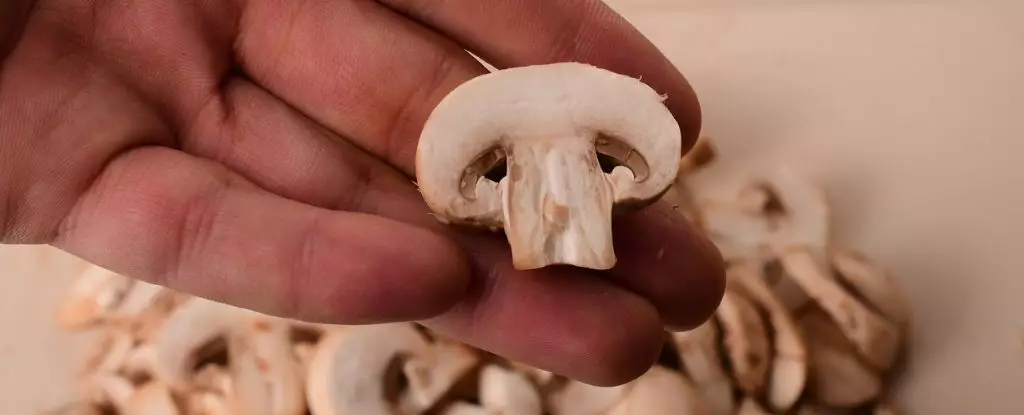When we consider superfoods and their potential health benefits, exotic varieties like Shiitake and Lion’s Mane often steal the spotlight. However, more common mushrooms, such as the white button mushroom (Agaricus bisporus), are gaining attention for their unrecognized health benefits, particularly in the realm of cancer prevention and treatment. These everyday fungi are not only delightful additions to our meals but may also harbor properties that could aid in combating diseases. The mounting research around these mushrooms indicates that their benefits may extend far beyond nutrition, warranting a closer examination of their roles in cancer therapies.
Recent studies conducted by researchers at the City of Hope, an esteemed cancer research institution in the United States, present intriguing possibilities regarding white button mushrooms as an adjunctive treatment for prostate cancer. While these fungi have traditionally been regarded merely as a culinary element, emerging evidence suggests that their extracts may influence cancer progression. The findings, while preliminary, have the potential to reshape how we view our dietary habits concerning health and disease prevention.
The road to possible FDA approval for a food-based anticancer treatment is fraught with challenges. However, the investigative teams at City of Hope are a step ahead, diligently adhering to regulatory guidelines to substantiate their claims. Shiuan Chen, a cancer biologist involved in the research, emphasizes the potential of integrating food into mainstream cancer treatment regimens, positing that “food as medicine” could revolutionize the way we approach cancer care.
One of the significant hurdles cancer poses is its ability to thwart the immune system’s efforts to eradicate it. Prostate cancer, specifically, deploys myeloid-derived suppressor cells (MDSCs) to inhibit immune responses. Here lies the potential for white button mushrooms. Early studies suggest that the extracts from these mushrooms may disrupt the tumor’s ability to produce these suppressor cells, potentially revitalizing the body’s immune response to combat cancer.
The City of Hope’s previous phase I clinical trial revealed compelling results, where individuals consuming white button mushroom extract showed decreasing levels of MDSCs and an improvement in markers of prostate cancer. Notably, some participants saw their cancer markers fall to undetectable levels after consistent consumption over several months. This promising outcome laid the groundwork for further investigations.
The research is currently advancing through a phase II clinical trial that explores the potential mechanisms behind the observed health benefits. Utilizing mouse models of prostate cancer, researchers found that the extract significantly curtailed tumor growth and prolonged survival rates. Importantly, mice receiving the extracts exhibited diminished levels of tumor-derived suppressor cells, equating to a more robust anti-tumor immune environment.
Furthermore, across the human clinical trials, scientists noted enhanced anti-tumor immune cell populations in participants who received the mushroom extract, indicating that these fungi could augment the effectiveness of traditional cancer therapies. While the evidence is still in its infancy, it points towards a promising future where dietary interventions could supplement traditional medical practices in managing cancer.
While the potential is exciting, the exact compounds within the mushroom that elicit these effects remain somewhat ambiguous. The biological complexity of mushrooms means they harbor myriad chemicals—soluble fibers, proteins, lipids, and phytochemicals—all of which could contribute to their anti-cancer properties. Disentangling these components’ roles in cancer treatment is essential but also laborious, emphasizing the importance of thorough clinical trials that prioritize safety and efficacy over pinpointing specific mechanisms.
As Xiaoqiang Wang, a staff scientist at the City of Hope, notes, the research is still unfolding. While early findings show great promise in positioning white button mushrooms as a complementary treatment for prostate cancer, further studies are crucial to validate these effects and broaden our understanding of how such foods can influence health outcomes.
The exploration of white button mushrooms as a potential ally in cancer therapy epitomizes a shift toward holistic approaches in medicine. As we lean towards integrative treatment protocols, recognizing and harnessing the inherent value of everyday foods may become instrumental in our fight against cancer. As these studies continue to evolve, the hope remains that such research could someday lead to evidence-based dietary recommendations that empower individuals in their health journeys, redefining our understanding of food’s role in medicine.

